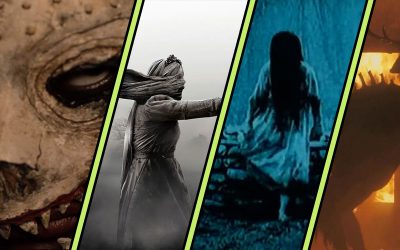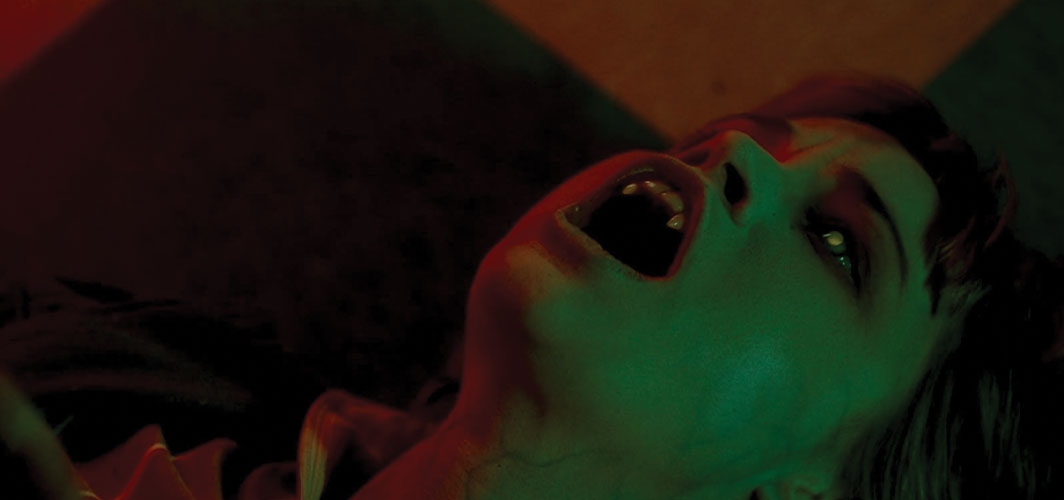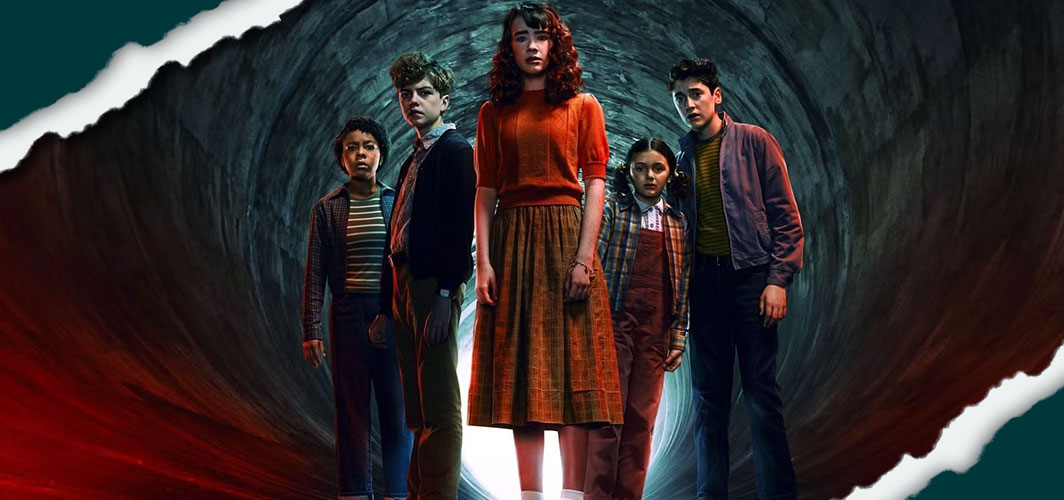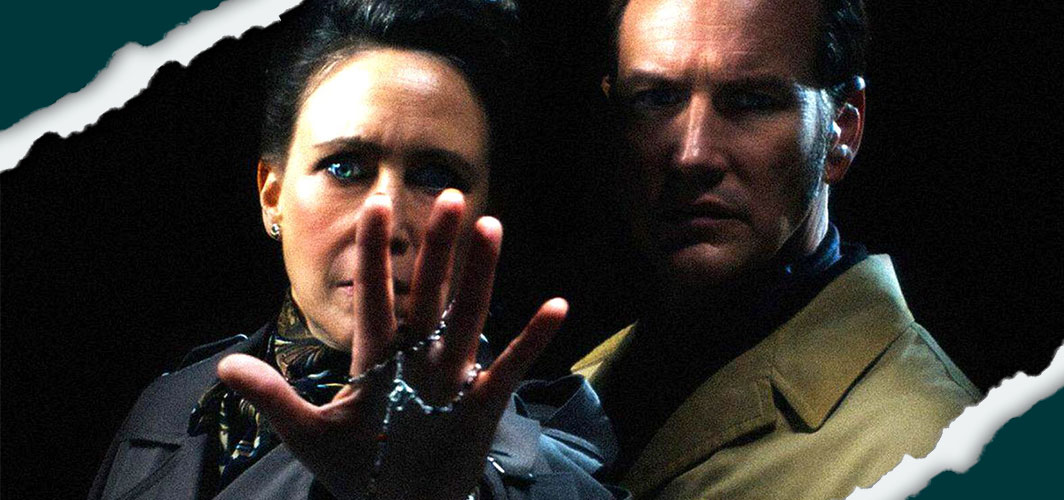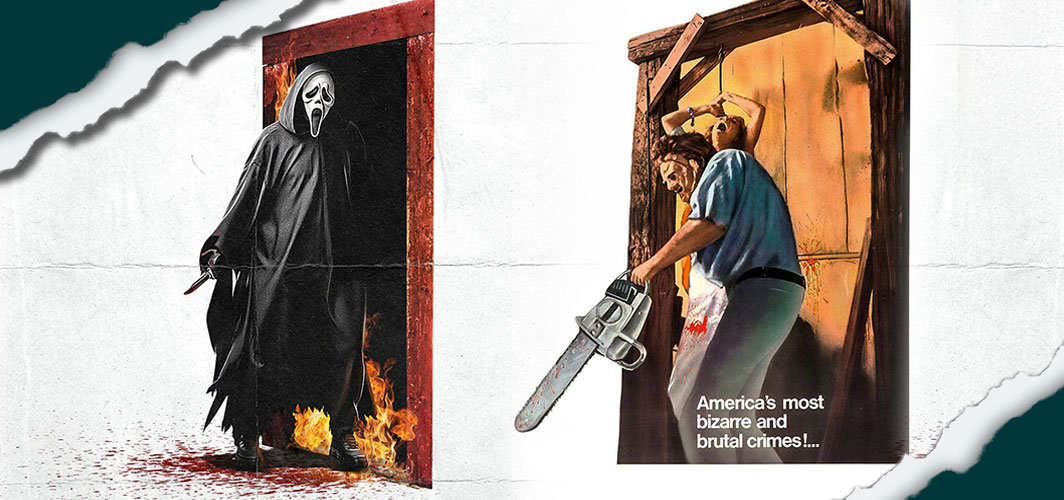The fourth wall is the imaginary “wall” at the front of the stage in a traditional three-walled box set. Speaking directly to, otherwise acknowledging or doing something to the audience through the camera is known as breaking the fourth wall. A film can capture you attention so much that you forget your watching a movie, but any one of the following things can break that illusion and blur reality and fiction.
The Mist (2007) – Stephen King Paradox
The Mist is a film adaptation of Stephen Kings short story of the same name, Directed by Frank Darabont. At the beginning of the film, we see protagonist, David Drayton, painting a movie poster depicting a “Gunslinger” against a floating door , a rose and Dark Tower in the background. All four elements of Stephen Kings epic saga The Dark Tower. This clever little nod to King’s work is compounded, as we pan around Drayton’s studio to reveal posters for two other King Adaptations, The Shawshank Redemption and the Green Mile, both of which were also directed by Darabont. In the Mist universe, Stephen King Exists.

The Hills have eyes – Intertextuality
Intertextuality is the shaping of a text’s meaning by another text. The Hills Have Eyes started a series of intertextual references between horror film directors. There is a scene where the protagonists returns to a trailer, inside you can clearly see a poster of the 1975 movie Jaws ripped in half. It was a message meaning that Jaws was not as half as scary as Hills. So as a joke and as an homage to Hills director, Wes Craven, Sam Raimi put a ripped Hills poster up in the basement scene of the Evil Dead. Wes Craven responded in Nightmare on Elm Street, by having a character watching the Evil Dead on a TV.

Pycho (1960) – Camera Glare
It could be said the Hitchcock breaks the fourth wall every time he cameos on screen, which he does in every one of his film. But his biggest wall breaking moment occurred in his 1960’s epic Psycho. At the end of the film, Norman Bates is sitting in a detention room at the local courthouse. At this point we all know he is bat-shit crazy, so it comes as no surprise that his mothers voice narrates the last few lines of the film. She declares herself innocent, saying that she “wouldn’t even harm a fly” as crazed Norman stares down the lens of the camera at the audience. Suddenly, Norman is not staring at a wall..he’s looking right at you!
As a reverse take on this, A Clockwork Oranges starts with a long hard stare from protagonist/antagonist Alex, provoking an unsettling start to Kubrick’s ultra-violent classic.

Twilight Zone – Camera Nod
From Death Proof’s brief camera smile, to the Omens ending where he turns to the face the audience. A cheeky glance at the camera is the classic way of breaking the fourth wall. Freddy literally winks at the audience as his severed head is pulled out of the lake in Freddy Vs Jason. But the best example comes at the epilogue of The Twilight Zone Movie. Dan Aykroyd returns on screen as an ambulance driver, having played a role earlier in the film, where he transformed into some sort of creature. Upon turning on a tape of Creedence Clearwater Revival’s cover of Midnight special, which also played over the prologue, strapped down patient John Lithgow chats briefly about “seeing something pretty scary”. The camera is positioned so that it looks like Aykroyd is actually addressing the audience, glancing over his shoulder each time he speaks. Aykroyd ends the film with the same line from the beginning, “do you want to see something really scary”, to which the camera pans down to Lithgow who stares down the lens in fear.

The Devils Advocate – Camera Dialogue
Some times a wink and a nod is not enough. A few films add a little dialogue for added effect. The Devils Advocate has a great example of this where Al Pacino look towards the camera smiles and says “Vanity, definitely my favourite sin”. Another Examples comes from the anthology film, Tales From The Darkside, in which young Timmy, having cooked the witch alive, grabs a pack of cookies, looks at the camera and announces “Don’t you just love happy endings!”

This is the End – Actors Playing Themselves
Nothing breaks the wall more than having an actor playing themselves within a film. An actors job is to act, so by “Not acting” , they are totally messing around with your perception of fiction and reality. None so more than in the horror/comedy This is the End, in which sees stars like Jonah Hill, James Franco, Seth Rogen, Emma Watson, and Channing Tatum all playing fictional versions of themselves. Whilst the film is funny as hell (ahem), the fourth wall is broken from the moment the film starts.

Did we miss something? Let us know in the comments below and tell us about your favourite film that breaks the fourth wall.
Horror Films Based on Folklore and Mythology Around the World
Looking at the scariest tales from around the world.
The Fallout Collection: Top 10 Films of Nuclear Devastation
Top 10 Nuclear War Films the show the stark realities of a world after fallout
10 Classic Songs Reimagined for Dramatic Film Trailers
Looking at classic songs in recent movie trailers, a trip down memory lane!
Trick or Treat (1986)
Rock n Roll
Halloween (1978)
The Night he Came home!


